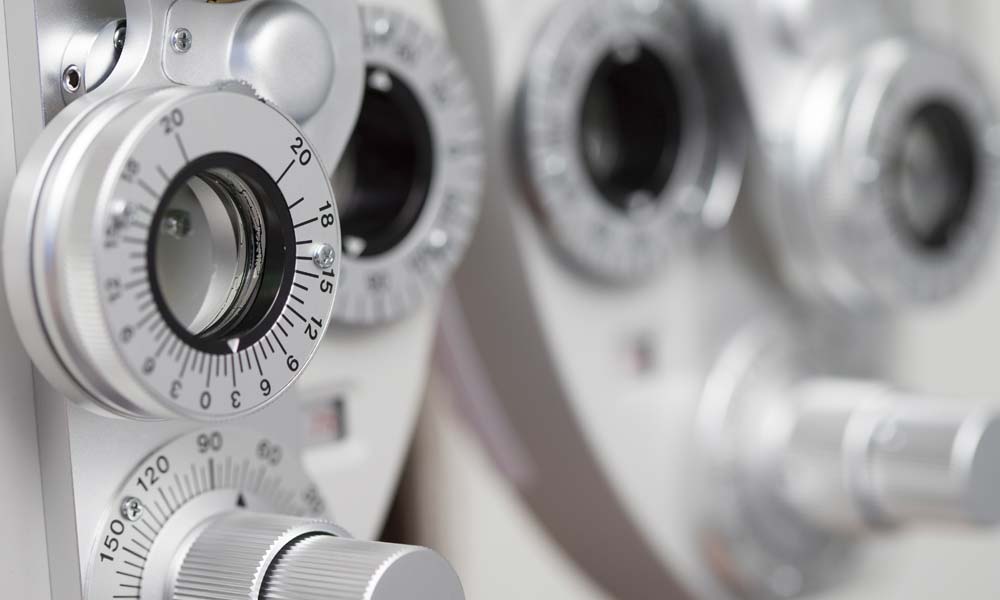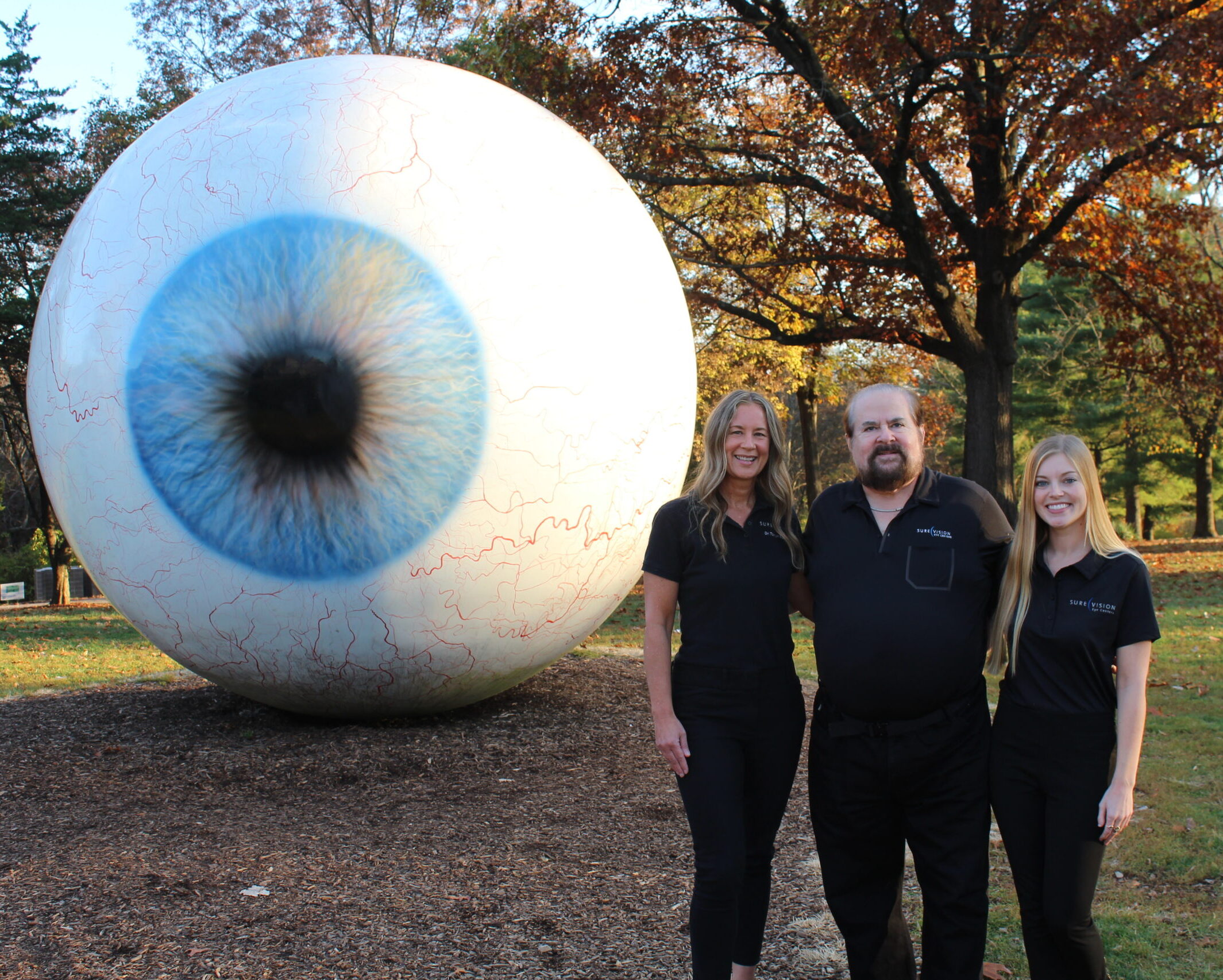What is Dry Eye Disease?
Dry Eye Disease is a problem with the moisture and lubrication on the surface of your eyes. In the United States, dry eye affects one out of seven adults over the age of 21. Our eyes rely on moisture and lubrication from the tears to keep them comfortable and healthy. Both the quantity and the quality of your tears is important. When this is not the case, the ocular surface does not receive the moisture or lubrication it needs and that can lead to the chronic condition called Dry Eye Disease (DED). Our specialists at Dry Eye Institute provide expert care and treatment. Learn more about dry eye treatment in Creve Coeur, MO, and Alton, IL, below.
What causes dry eye?
Our tear film is made up of three unique layers. Each layer of your tear film must be present and work properly for your eye to remain moisturized and lubricated. Dry eye occurs in one, or multiple ways:
- Inadequate amount of tears. This can be due to a decrease in the production of tears, or an increase in the rate of evaporation of the tears. This is truly a condition where your eye is too dry.
- Poor quality tears. Even when you have plenty of moisture from your tears, a lack of lubrication from the tears you have can also lead to symptoms of dry eye. This is even more troublesome when you have roughness to the surface of your eyes from scars, allergy problems, exposure to dust, dirt or other irritants in your environment
Who is at risk for dry eye?
Dry eye disease can develop for many reasons. Those who are more at risk may have one or many of the following characteristics:
- Age. Dry eye increases with age.
- Gender. Women are more likely to suffer from symptoms of dry eye disease than men.
- Systemic disease. Diabetes, rheumatoid arthritis, Sjogren’s syndrome, systemic lupus erythematous, and thyroid eye disease can all lead to dry eye.
- Medications. Some high blood pressure medications, antidepressants, antihistamines and decongestants, diuretics, cholesterol lowering drugs, oral contraceptives, pain relievers, dermatological medications (Accutane), antipsychotic medications, and gastrointestinal medications.
- Environmental conditions. Dry or dusty environments, smoke filled environments, high altitudes, windy conditions, and hot conditions along with ceiling fans and dehumidifiers can all make your symptoms worse.
- Contact lens wear. Contacts often need more lubrication and moisture to carry oxygen to your cornea.
- Decreased blink rate. This can occur due to certain diseases, extended reading, extended computer use, or when watching TV.
- Hormones. A particular problem for women after menopause.
- Eye surgeries, especially LASIK
- Inflammation and eye conditions. Inflammation of the eyelids (blepharitis) and ocular surface can lead to symptoms of dry eye disease
What are the signs and symptoms of dry eye?
- Stinging or burning sensation
- Scratchy or gritty feeling
- Red eyes
- Watery eyes can mean a lack of lubrication even when there is enough, or too much, moisture
- Mucous in/around eyes
- Blurred vision – this blurred vision may come and go throughout the day
- Difficulty wearing contact lenses
- Eye fatigue
- Light sensitivity
- Frequent blinking
How is dry eye diagnosed?
Dry eye disease can be diagnosed by your eye care professional. But since there are so many causes of dry eye disease, many general eye doctors don’t have the time or equipment to perform the detailed testing and analysis that it takes to determine the cause of your condition. That results in your getting instructions to use artificial tears without details of why you need them, how often you need them, or which formula of drops would be best for your particular condition. A thorough history/questionnaire, a comprehensive eye exam, and specialized testing can help lead to a diagnosis and discover the underlying causes of your condition. From there, a proper dry eye care plan can be put into place to address your needs and the best dry eye treatment in Creve Coeur and Alton to relieve your troubles.
How is dry eye treated?
Lubricating eye drops are the second most common medical treatment in the USA, second only to analgesics like acetaminophen, aspirin, or ibuprofen. Because there are so many factors causing dry eye disease, there is a wide range of dry eye treatment options as well. A treatment that may work well for one person may not be the best for you, depending on the specific cause of your dry eye problem.
Options include:
- Artificial tear drops, but these come in many different formulations and different levels of treatment, so we need to recommend what would be best for your needs.
- Lid scrubs to remove scales and flakes from your eyelid that can irritate your eyes.
- Warm compresses to help remove wax deposits from your eyelid tear glands
- Punctal plugs that close the drain to prevent loss of tears from your eyes
- Topical steroid drops to reduce inflammation
- Restasis/Xiidra drops to treat medical problems with the glands that produce your tears
- Fish oil/omega-3 fatty acid tablets to add nutritional support for your tear glands
- Avoiding causative environments – ceiling fans, dehumidifiers, smoky or dust environments
- Taking breaks and remembering to blink during prolonged near/computer activity
Dry Eye Treatment: Prognosis & Outcome
Dry eye disease is a complex condition with many factors influencing its onset. While there is no permanent solution at this time, the symptoms can be significantly reduced with a proper treatment regime in place. In order to accomplish this, the underlying causes must be discovered and addressed to create a plan that will work specifically for you. SureVision Eye Centers is the home of the Dry Eye Institute where we have the specialized equipment and instruments to do the important testing you need. Then you will be evaluated by our specialist in Dry Eye Diseases. We will take the time to explain your specific Dry Eye condition and the best products to treat it. We have early access to new medications and treatments because we work with the manufacturers to evaluate their products and find those that work the best. Contact our ophthalmologists in Creve Coeur, MO, and Alton, IL, today for superior dry eye treatment.
Address: 12101 Woodcrest Executive Dr Suite 150 B, St. Louis, MO 63141
Phone: (314) 292-8088
Come in today and let us determine a treatment that is best for you!
At SureVision Eye Centers,
Vision Like You’ve Never Seen Before™
The surgeons and doctors at SureVision Eye Centers are among the most experienced and well-trained in the world. Each year, they perform thousands of surgical and vision correction procedures. At SureVision Eye Centers, we believe everyone should have a lifetime of their best possible vision.


